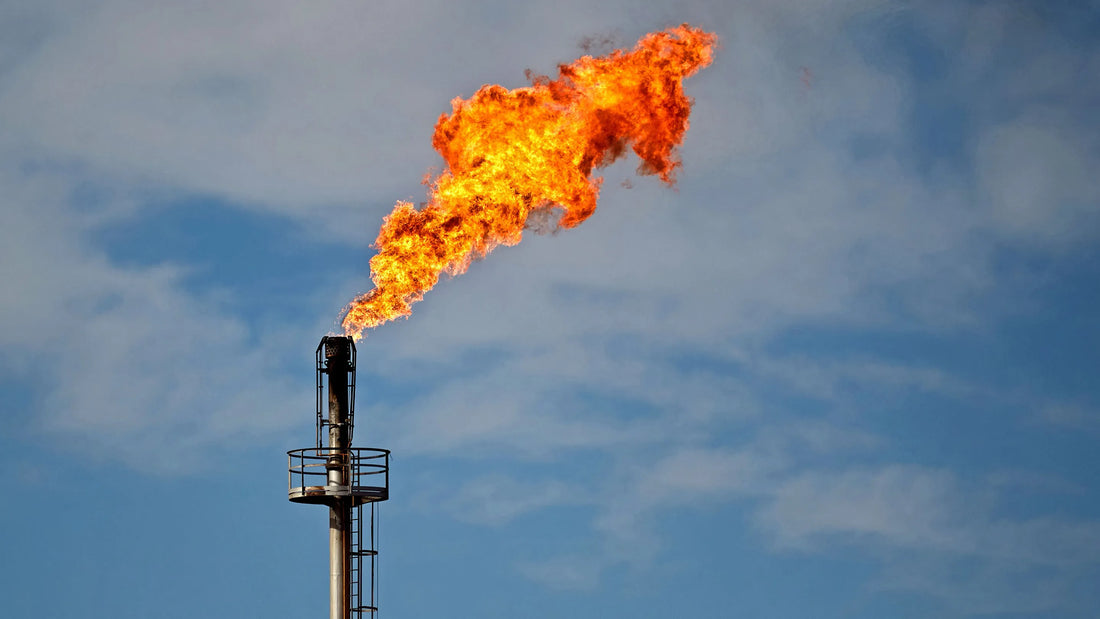In a landmark move, the US government has unveiled a transformative rule aimed at substantially reducing methane emissions from the US oil and gas industry.
This strategic initiative aligns with global efforts to address the urgent climate crisis, as underscored by commitments made during the COP28 climate summit in Dubai.
Methane is a potent greenhouse gas.
It has a warming effect over 80 times greater than carbon dioxide in its initial two decades in the atmosphere.
Recognizing the significant role played by the oil and gas sector in global methane emissions, the International Energy Agency has emphasized the critical need for targeted measures.
The forthcoming rule is projected to reduce methane emissions by almost 80% by 2038 compared to business-as-usual scenarios.
The EPA estimates that this initiative will prevent approximately 58 million tons of methane from entering the atmosphere during this period, equivalent to removing over 300 million gas-powered cars from the roads for a year.
Key components of the rule include putting an end to routine flaring of natural gas, a byproduct of oil drilling, and transitioning towards capturing this gas rather than burning it.
Gas flaring occurs when natural gas that comes out with oil during extraction is burned. This has been happening since oil production started more than 160 years ago. It occurs because of various problems, such as not having enough regulations or support from governments, and because it's not always profitable to store, transport and sell the natural gas.
The rule will also enforce rigorous leak monitoring for oil and gas wells and compressors, addressing leaks from various equipment such as pumps, storage tanks, and controllers.
Moreover, cutting-edge satellite and remote-sensing technology will be employed for independent, third-party monitoring to detect large methane leaks.
EPA Administrator Michael Regan and White House National Climate Adviser Ali Zaidi unveiled this groundbreaking rule at COP28, emphasizing the US government's commitment to significantly reducing methane emissions. As the world's largest oil producer, responsible for 21% of global oil production last year, the United States is taking substantial steps to lead by example.
Speaking on the need for accountability and transparency, Zaidi highlighted the importance of measurable progress in methane emission reduction. This comprehensive approach aligns with the administration's broader commitment to environmental stewardship, including mobilizing investments to address environmental challenges and setting stringent standards for the oil and gas sector.
In parallel with the US initiative, fifty major oil and gas companies, including industry giants Exxon and Saudi Aramco, have pledged to cut their methane emissions by 80 to 90% by 2030. This commitment, known as the Oil and Gas Compact, also involves third-party verification following international standards set by the Oil and Gas Methane Partnership 2.0.
While scientists emphasize the urgency of swift methane emission reductions to curb the climate crisis, critics argue that the industry has yet to deliver on previous commitments. To address these concerns, a coalition led by Bloomberg Philanthropies and the United Nations will launch a program ensuring that these companies fulfill their promises to reduce methane leaks.
The US is spearheading a monumental effort to slash methane emissions, setting the stage for a global paradigm shift towards sustainable practices in the oil and gas industry. As the world collectively strives to meet climate goals, this initiative marks a pivotal moment in the fight against climate change.
It's a #WinForThePlanet 🙌🏼
PS - if you'd like to reduce your carbon footprint and bring a sustainable laundry routine to your home, check out Weightless Laundry Sheets.

